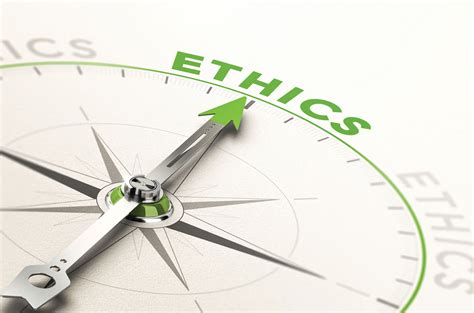Ethics plays a pivotal role in guiding human behavior, shaping societal values, and ensuring the well-being of individuals and communities alike. It provides a framework for distinguishing right from wrong, promoting ethical decision-making, and fostering a sense of moral responsibility.

The Nature of Ethics
Ethics, derived from the Greek word “ethos” meaning “character” or “custom,” refers to the system of principles and values that guide human conduct. It encompasses both individual ethics, which concern personal beliefs and actions, and social ethics, which regulate interactions within society.
Key Elements of Ethics
Central to ethics are the following key elements:
- Values: Core beliefs and principles that shape our sense of right and wrong.
- Principles: General rules or guidelines that guide our actions and decisions.
- Virtue: Traits of character, such as honesty, integrity, and compassion, that promote ethical behavior.
- Moral Dilemmas: Situations where conflicting values or principles present challenges in making ethical decisions.
Importance of Ethics in Society
Ethics serves as an indispensable foundation for a just and harmonious society. It fosters:
- Trust and Cooperation: Ethical behavior builds trust among individuals and groups, facilitating cooperation and collaboration.
- Social Cohesion: Shared ethical values unite communities, reducing conflict and promoting social harmony.
- Protection of Vulnerable Groups: Ethics ensures that the rights and well-being of vulnerable individuals, such as children and the elderly, are protected.
- Accountability and Transparency: Ethical principles hold individuals and organizations accountable for their actions, promoting transparency and preventing corruption.
Applications of Ethics
Ethics finds applications in various domains:
- Medical Ethics: Regulates ethical issues related to patient care, confidentiality, and end-of-life decisions.
- Business Ethics: Guides ethical practices in corporate governance, marketing, and employee management.
- Environmental Ethics: Addresses the ethical implications of human activities on the environment and future generations.
- Political Ethics: Establishes standards of conduct for politicians and public officials, promoting transparency and accountability.
- Technology Ethics: Considers the ethical dimensions of emerging technologies, such as artificial intelligence and gene editing.
Ethos in Action
Consider the following examples of ethics in action:
- A doctor treats all patients with compassion and respect, regardless of their ability to pay.
- A CEO values honesty and transparency, fostering a culture of integrity within the organization.
- A volunteer dedicates time to helping underprivileged communities, motivated by a sense of social responsibility.
- A scientist ensures that research is conducted ethically, respecting human subjects and animal welfare.
- An environmental advocate raises awareness about the impact of climate change, advocating for sustainable practices.
Pitfalls to Avoid in Ethical Decision-Making
Common mistakes to avoid in ethical decision-making include:
- Self-Interest: Allowing personal interests to compromise ethical judgment.
- Cognitive Biases: Influenced by preconceived notions or emotional factors that cloud reasoning.
- Moral Relativism: Believing that ethical standards are subjective and vary depending on circumstances.
- Groupthink: Conforming to group beliefs without critically evaluating ethical implications.
- Limited Perspective: Failing to consider all relevant stakeholders and perspectives when making decisions.
Frequently Asked Questions
1. What are the different ethical theories?
* There are various ethical theories, including utilitarianism, deontology, and virtue ethics.
2. How can we resolve ethical dilemmas?
* Consider different perspectives, weigh potential outcomes, and adhere to ethical principles.
3. Why is ethics important in everyday life?
* Ethics guides our actions and interactions, fostering a sense of purpose and fulfillment.
4. How can we promote ethical behavior in society?
* Encourage ethical education, create ethical codes of conduct, and reward commendable ethical actions.
5. What are the challenges faced in ethical decision-making?
* Cognitive biases, self-interest, and conflicting values can pose challenges in ethical judgment.
6. How can technology impact ethics?
* Emerging technologies bring new ethical dilemmas, such as data privacy and artificial intelligence bias.
Conclusion
Ethics serves as an indispensable compass that guides our choices and shapes our societal interactions. By embracing ethical principles, we can navigate moral dilemmas, foster a just and harmonious society, and live lives of integrity and purpose. The pursuit of ethics is an ongoing journey, requiring constant reflection and effort, ultimately leading us towards a path of goodness and fulfillment.
